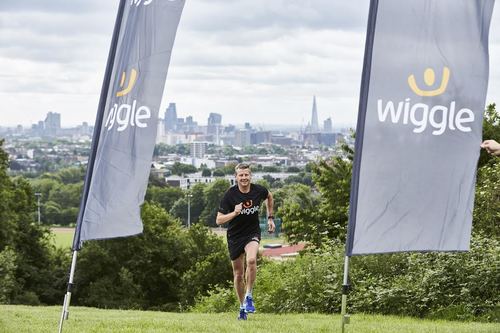How To Run A Mile - Tips From Steve Cram and Wiggle
Wiggle has partnered with Strava, the social network for athletes, to get runners of all levels to run their best mile in June.
As part of the collaboration there are over 100 pairs of running shoes, provided by Wiggle, up for grabs. Any runner who uploads a run at least one mile in distance and tags #MyMile in their activity title on Strava has the chance to win running shoes from Wiggle for themselves and up to ten of their Strava followers.
Britain has a rich history in running the mile ever since Sir Roger Bannister flew around Iffey Road running track in under four minutes for the first time in 1954. Steve Cram the former world record holder for the mile distance still holds the European record of 3:46.32.
Coveted in the US, the mile has become the forgotten distance in the U.K. in recent times, overshadowed by British success from the likes of Mo Farah and in popular distances from 5km parkrun events to marathons.
Now, Wiggle aims to help encourage a renaissance in this distance, one that still deserves its space. The mile is an inclusive distance that all ages and abilities can participate in yet it also provides a stern test of speed and endurance for even the hardiest runners.
The initiative will run until 30th June. More information on the Strava Mile can be found on the website
Steve Cram's top running tips
What are the key things that you would say that runners can do to improve their mile time?
The first thing is not to be frightened of being ambitious about that. Most people take it easy and say, ‘okay, I’m an 8 minute miler for 10k and so I’m happy if I run a 7 and a half minute miler, that’s quite fast for me.’
In reality, I think that you should be able to run 15-20% quicker for one mile than you run for 6 miles (10km). If you run 8 minute miles for a 10k, you should be able to be doing a 6-minute mile as your best effort. But to do that, the first thing is be ambitious and plan it.
Pick your target
Get a target that’s going to stretch you based on what your normal running pace is, but be ambitious with that target.
Vary your training
You need to vary your training. It’s not simply a case of running a mile every night as hard as you can and you’ll get better. It doesn’t work like that. Break it down into its components:
• Endurance
• Speed endurance
• Speed - it’s the speed that most people don’t have.
Speed running
Speed is just purely running fast. Practice it - most people don’t know how to do it.
Usain Bolt spends years just doing starts and drills and 20 yards / 30 yards and people are like that’s not really training is it? It is. He learnt to run fast because running fast is different. When you run six-minute mile pace, it’s different to doing 8 minute a mile - it’s a different action.
You need to introduce that into interval training where you’re doing repetition and recovery so you’re doing 10x a minute, 10x 30 seconds, 10 x 45 secs that sort of thing. You should be doing it at your race pace - at your projected pace. So if you want to do a 6-minute mile its 90 seconds a lap. So you should be trying to do 1 min reps at that pace. 200 m reps where you’re running 45 seconds. Your training needs to reflect that.
Stretch and strengthen
I think the third thing is to be conscious that if you’re going to change some of your running action / speed works / bigger endurance think about stretching and strengthening, so non-running activities as well. It’s not just about saying you have to go to the gym, but start doing plyometrics and stretching. You’re going to start using your quads and your hamstrings and being on your toes much more than you would do in your normal running. You need to train your body for this - you don’t want to get injured.
Race Day - Be Brave and break it down
You need to be bold and really treat it like a race. Race a mile. You’ve done the training, now break it down. You’ve got 4 laps.
Plan get to halfway so that you’re kind of reasonably relaxed. The focus then has to come on the third lap - don’t wait until the last lap. What most people do is they lose it on the third lap, holding back for lap four. They start getting a bit tired at that point so they slow down and get out of the rhythm because they still think ‘I’ve got quite a long way to go still’.
It’s the third lap when you win or lose it, so focus. That’s a psychological thing. Focus on the third lap, not the last lap, the third lap, because on that last lap you’ll always find something a bit extra.
ENDS
Credit: Run your fastest mile with wiggle.com and Strava this month for a chance to win one of over 100 pairs of running shoes. Visit the site for more info
For more information on the campaign, please contact 0207 940 7170 or email joe@brandnation.co.uk
